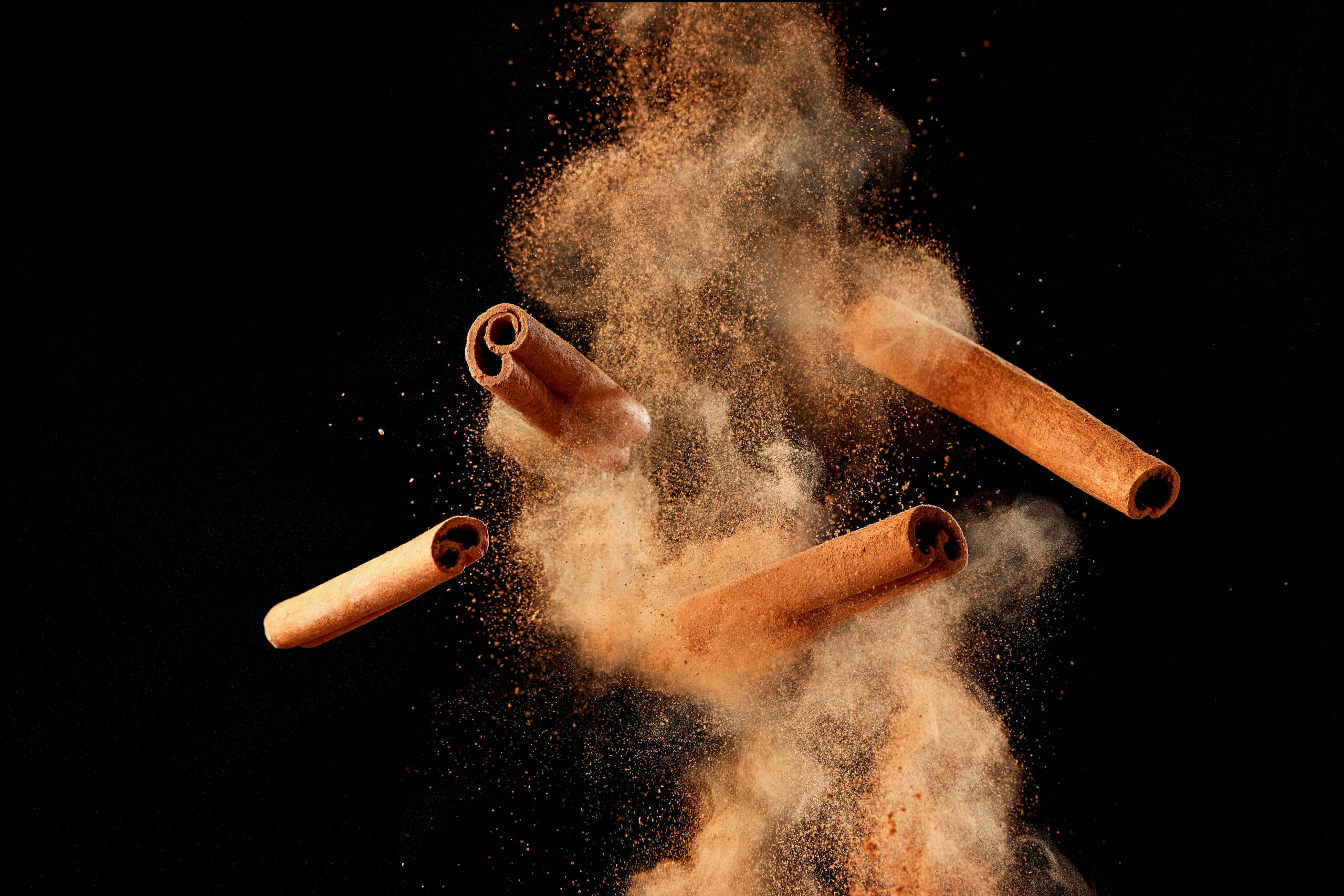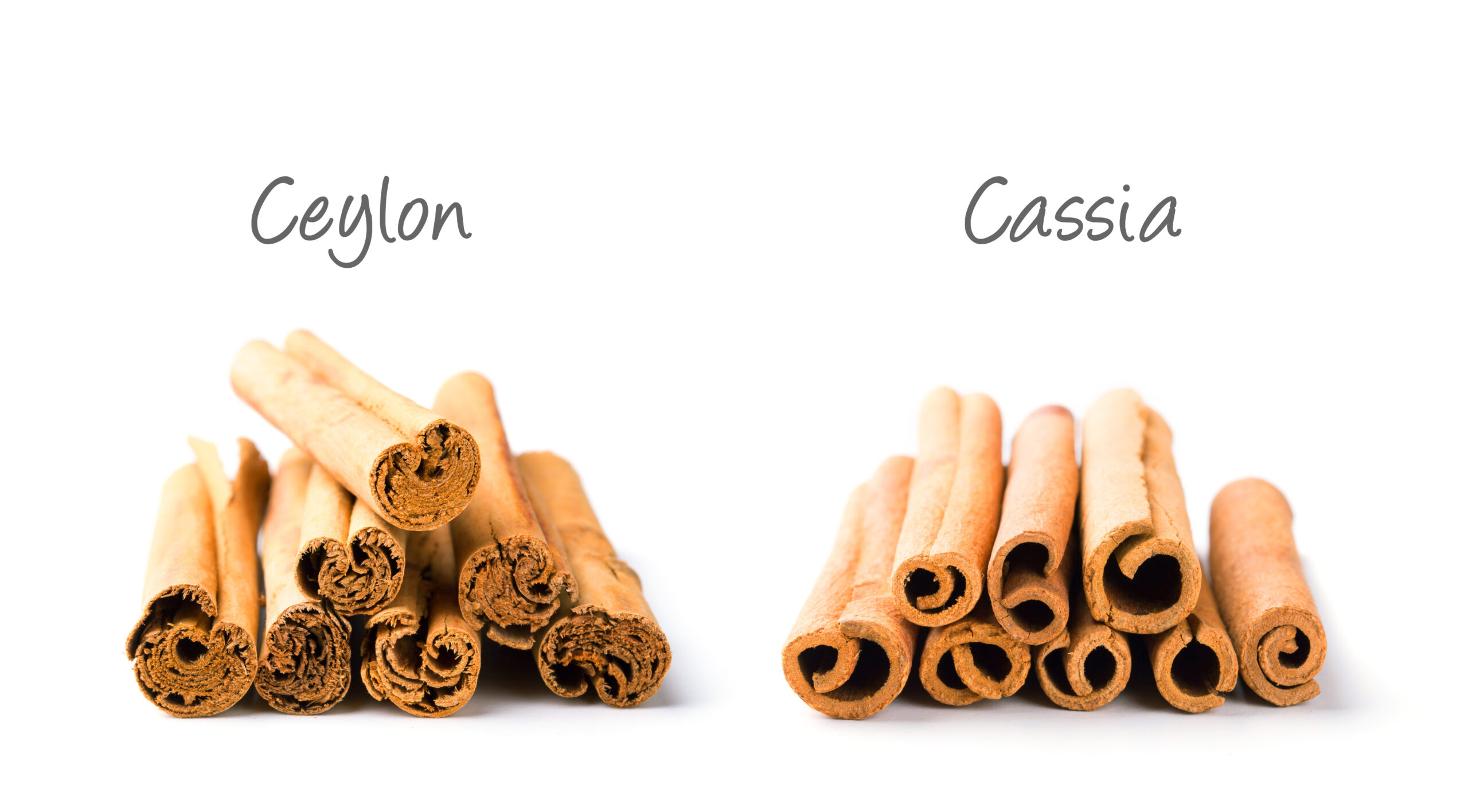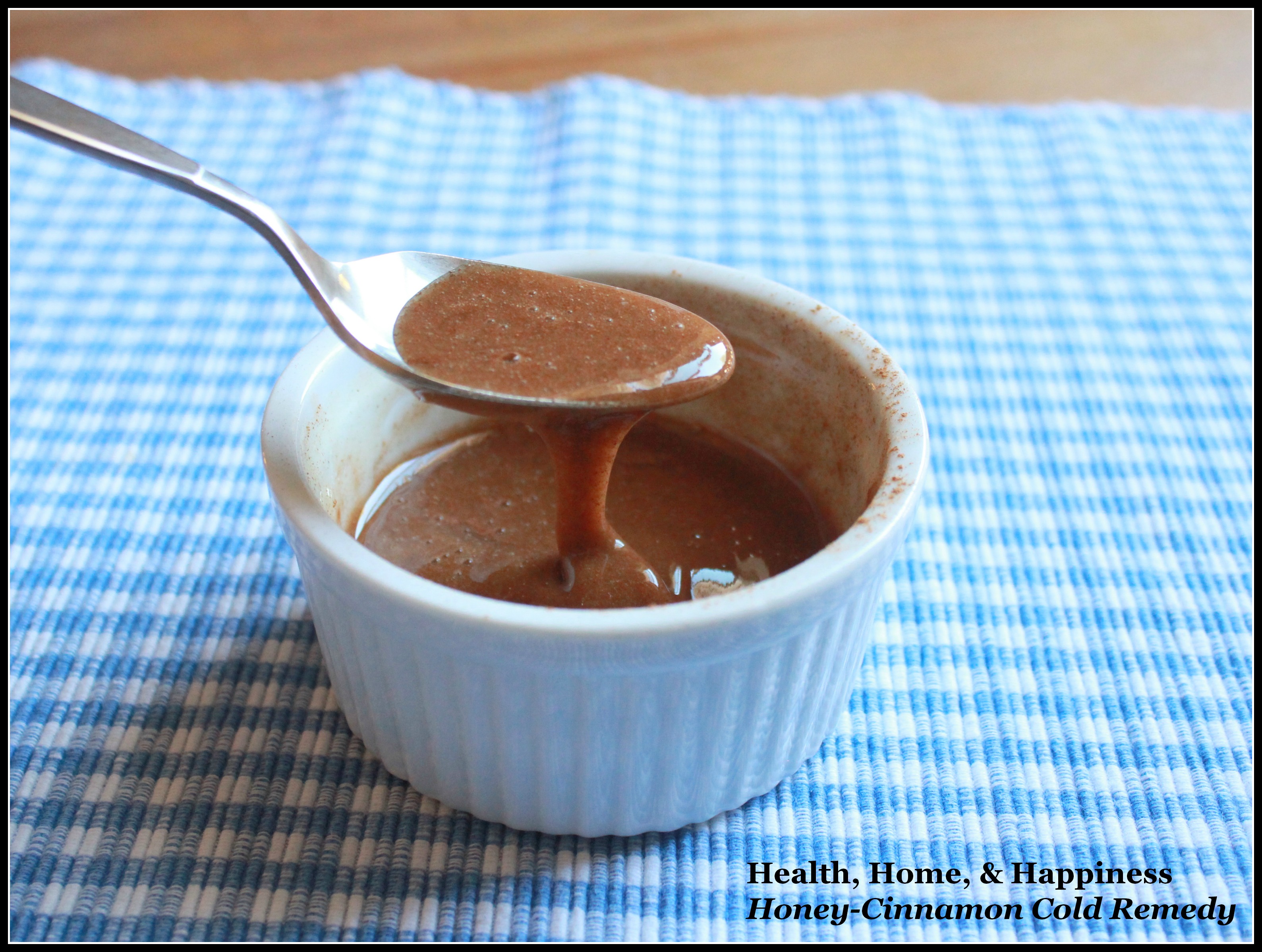
Even if you only have the most basic seasonings and spices, it’s likely that cinnamon is in your pantry or cupboard. You may be sprinkling it in your coffee or over your breakfast each morning, having heard that cinnamon is shown to be helpful in lowering inflammation, boosting metabolism, fighting viruses, and more!
But I bet most of you didn’t realize that there are two kinds of cinnamon, and only one of them is good for you, with the other kind of cinnamon, though similar in flavor, is linked with liver toxicity and does not have the associated benefits.
There doesn’t seem to be a cooking ingredient that does not come with some form of controversy, and cinnamon is no exception. Cinnamon comes in two main types, Ceylon and Cassia.

The bad: Cassia cinnamon is high in coumarin, which has been linked with liver damage when consumed in high doses (source). Cassia, unfortunately, is less expensive to obtain and still provides the same cinnamon flavor, so has become common on grocery store shelves.
The good: Ceylon (Cinnamomum zeylanicum) cinnamon is more sweet and mild tasting than Cassia cinnamon , and has very low levels of coumarin. If taking cinnamon medicinally, it is highly recommended to seek out the Ceylon variety.
Can you guess which cinnamon is most likely to show up on grocery store shelves? You guessed it… Cassia cinnamon- which is the one we don’t want to be eating!
The good news: Ceylon cinnamon is delicious, less bitter, easy to switch to, and once you know what you’re looking for, Ceylon cinnamon is easy to find!
Where to Find Ceylon Cinnamon:
- In bulk on Amazon here.
- In a small jar to sprinkle with here.
- In capsule form to use medicinally here.
- In cinnamon stick form here.
- As essential oil here.
What Ceylon (the good) Cinnamon is also called:
- Cinnamomum zeylanicum
- Cinnamomum verum
- Sri Lankan Cinnamon
- True Cinnamon
Other names for Cassia Cinnamon (what to avoid):
- Avoid anything otherwise called ‘cinnamon’
- Avoid Saigon cinnamon
- Avoid Vietnamese cinnamon
- Avoid Dutch cinnamon
- Avoid baker’s cinnamon
- Cassia cinnamon also called “Bastard Cinnamon” 😳
Ceylon cinnamon linked to the following health benefits:
- Antimicrobial (source)
- Treats candida overgrowth (source)
- Lowers blood glucose levels (source)
- Increases metabolism (source)
- Lowers inflammation (source)
- Lowers blood cholesterol (source)
- Improves wound healing (source)
- Alzheimer’s treatment (source)
- Improves liver function (source)
- And more! (source)

Cinnamon and honey is a common home remedy for an oncoming cold, sore throat, or respiratory illness and works best when Ceylon cinnamon, or ‘true cinnamon’ is used.
Yummy Recipes using Healthy Ceylon Cinnamon:
- Gluten-Free Apple-Cinnamon Kugel Made With Coconut Flour
- Just Honey & Cinnamon Lollipops
- Cinnamon Roll Pullaparts Made with Almond Flour (Paleo, GAPS)
- Roasted Carrots with Cumin and Cinnamon
- Homemade Pumpkin Spice Blend
Learn how to heal leaky gut

60-page ebook of all my best GAPS Diet (Gut and Psychology Syndrome) articles all in one place.


I generally buy cinnamon from Penzeys spices and they have the most fantastic Vietnamese cinnamon. It’s far and away my favorite, but not sure where it lands on this scale? I would be very curious to hear your thoughts!
Unfortunately Vietnamese cinnamon is cassia, I’ve used it too and it is good! If it’s just small amounts, I’m sure it’s fine, but if you use a lot, or want the health benefits, I’d switch to ceylon.
This was interesting & I am glad that you’re getting the word out that there is another wonderful cinnamon choice and how to spot the differences but I think Coumarin is getting an overly bad rap here when it is naturally present in everything from strawberries and celery to honey and cinnamon, and is medicinally amazing in its own right in therapeutic amounts. I do get the point which is that a meager teaspoon of cassia cinnamon is at the top supposed recommended dose per day for a 130-ish pound adult but the studies on the ill effects were not on humans, not truly thought to be linear with humans, and preventative in intent at best when true human toxicity has not been established from regular old spice cabinet cassia cinnamon consumption (https://www.sciencedirect.com/science/article/abs/pii/S0278691599000101?via%3Dihub.) Not only that, but Coumarin is the basis of our modern-day medications Warfarin and Coumadin because it has inherent clot-regulating abilities. It’s also beneficial for lymph issues, regulates blood sugar, and is studied to be antiviral, antifungal, & antioxidant among lots of other incredible things. Coumarin is spoken of largely in the negative here and I think this is, like most of nature’s amazing compounds inherent in our foods, medicinal in proper amounts and toxic if too much is consumed. I just hate to see something that likely does more good than harm be slammed as a danger when it’s not proven to be so in the amounts we generally consume on a regular basis!